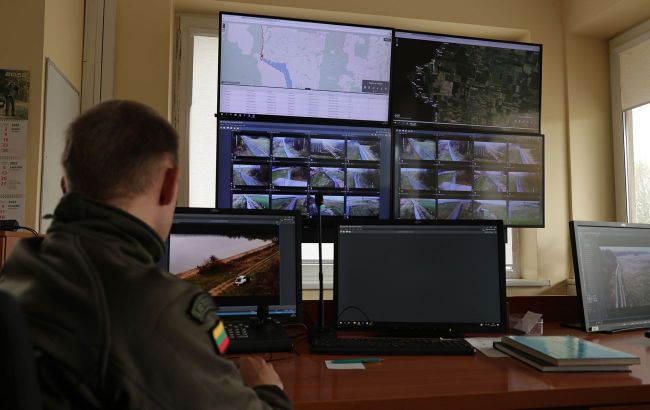Lithuania wants to close two more checkpoints on Belarus border
 Photo: Lithuania wants to close two more checkpoints on the border with Belarus (Getty Images)
Photo: Lithuania wants to close two more checkpoints on the border with Belarus (Getty Images)
Lithuania's National Security Commission has proposed closing two more checkpoints on the Belarusian border and taking measures to reduce travel between the two neighboring countries, reports LRT.
This commission includes the prime minister, several members of the government, representatives from the president’s office, and intelligence services.
The proposal concerns the Lavoriškės and Raigardas checkpoints, two of the four that remain open after Lithuania closed two checkpoints last August.
What else can change
The Commission also proposes to strengthen passenger bus services between Lithuania and Belarus, gradually reducing the number of permits issued to private carriers.
Another proposal is to restrict the pick-up and drop-off of passengers at the Kena railway border checkpoint and to stop pedestrians and cyclists from crossing the Belarusian-Lithuanian border.
What is it connected with?
The head of the National Crisis Management Centre Vilmantas Vitkauskas said at a press conference in the government office that the checkpoints would be closed on March 1.
"The flow of Belarusian citizens has recently increased by around 50 percent via all road border checkpoints along the border with Belarus. The increase in the flow of transport, goods and people requires optimization of the process of managing these flows and even more detailed screening of persons, vehicles and goods," he said.
Control over sanctions execution
According to the statement, the proposed solutions will make it possible to reduce the number of vehicles and passengers transiting through Lithuania, as well as reduce the likelihood of actions by the Belarusian and Russian special services and security services against Lithuania.
This step is also aimed at more effectively blocking the import of sanctioned goods into Belarus and Russia, as well as at preventing smuggling.
Lithuania's position on sanctions against Belarus
Recently, the heads of the customs services of Lithuania, Latvia, and Estonia agreed on unified control during the implementation of EU sanctions against Russia and Belarus.
Also, at the beginning of the year, Lithuania took away the residence permit of the director of the Belarus sanatorium Ilya Epifanov, which is used by the Belarusian dictator Oleksandr Lukashenko.
And in November it became known that Lithuania would impose fines for non-compliance with international and national sanctions.

